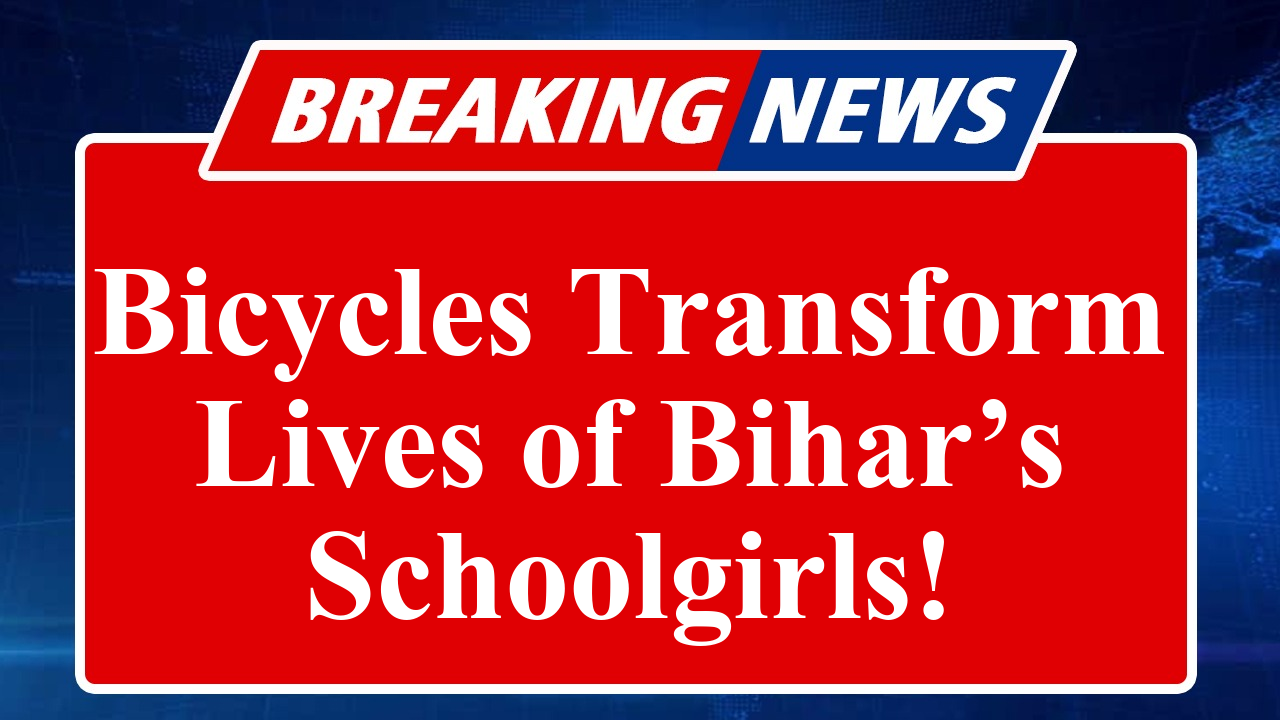Bihar’s Mukhyamantri Balika Cycle Yojana, launched in 2006, continues to transform education for girls by providing free bicycles, boosting school attendance and reducing dropout rates by nearly 40%. In 2025, the scheme’s impact remains profound, empowering rural girls, enhancing safety, and inspiring similar initiatives globally, with data showing significant educational gains.
Bihar’s Free Bicycle Program Empowers Schoolgirls, Cuts Dropout Rates
In rural Bihar, where long distances and safety concerns once kept girls from attending school, the Mukhyamantri Balika Cycle Yojana has been a game-changer since its inception in 2006. By providing free bicycles to girls in Class 9 and above, the program has addressed critical barriers to education, including travel time, safety, and cultural norms that restrict mobility. As of June 2025, the scheme continues to yield remarkable results, with dropout rates among girls plummeting and school enrollment soaring.
The initiative, launched by the Bihar government, provides financial assistance—currently ₹4,500 per girl—to purchase bicycles, enabling them to commute to school efficiently. According to the Bihar Education Department, the program has benefited over 1.5 million girls since its start, with 5.48 lakh girls receiving bicycles in 2023 alone. This has led to a nearly 40% reduction in dropout rates at the secondary level, as reported by researchers from the Asian Development Research Institute (ADRI). The number of girls appearing for Class 10 board exams has also risen dramatically, from 1.87 lakh in 2005 to 8.37 lakh in 2020, with steady growth continuing into 2025.
The scheme’s success lies in its ability to tackle multiple challenges. Long walks to school, often exceeding 5 kilometers, posed safety risks and deterred parents from allowing their daughters to attend. Bicycles have cut travel time by up to 35% and reduced late arrivals by 66%, according to a study by Professor Nishith Prakash of Northeastern University. This has also boosted girls’ confidence and independence, as exemplified by stories like that of Nibha Kumari, a 27-year-old from Begusarai, who credits the bicycle for enabling her to complete high school and pursue teacher training.
Beyond Bihar, the program’s impact has resonated globally. Six African nations, including Zambia, have adopted similar models, with Zambia reporting a 27% drop in girls’ absenteeism within a year of implementation. The United Nations has endorsed the scheme, highlighting its role in reducing gender disparities in education. In India, states like West Bengal, Assam, and Tamil Nadu have launched comparable initiatives, with rural cycling among girls doubling in these regions over the past decade.
Despite its successes, challenges remain. A 2024 report by The Hindu noted that Bihar’s secondary-level dropout rate, though improved, stood at 20.5% in 2021-22, higher than the national average of 12.6%. Infrastructure gaps, such as the lack of all-weather roads, limit the scheme’s effectiveness in some areas. A ScienceDirect study emphasized that the program works best when paired with quality road infrastructure, increasing enrollment by 60% in villages with all-weather roads. Additionally, societal pressures still lead some girls to abandon cycling after marriage, as cultural norms shift post-matrimony.
The Bihar government has complemented the bicycle scheme with other measures, such as free sanitary napkins and scholarships, to further curb dropouts. In 2025, the state plans to expand the program to include more girls in higher secondary education, aiming to sustain the momentum. With female literacy in Bihar rising significantly—from 33.6% in 2001 to 51.5% in 2011, and continuing to climb—the initiative is a beacon of progress, empowering girls to dream beyond their villages.
Disclaimer: This article is based on reports, studies, and data from sources including the Bihar Education Department, The Indian Express, Hindustan Times, and academic research by ADRI and Northeastern University. Information is accurate as of June 2025. Readers are advised to verify details through official channels.

